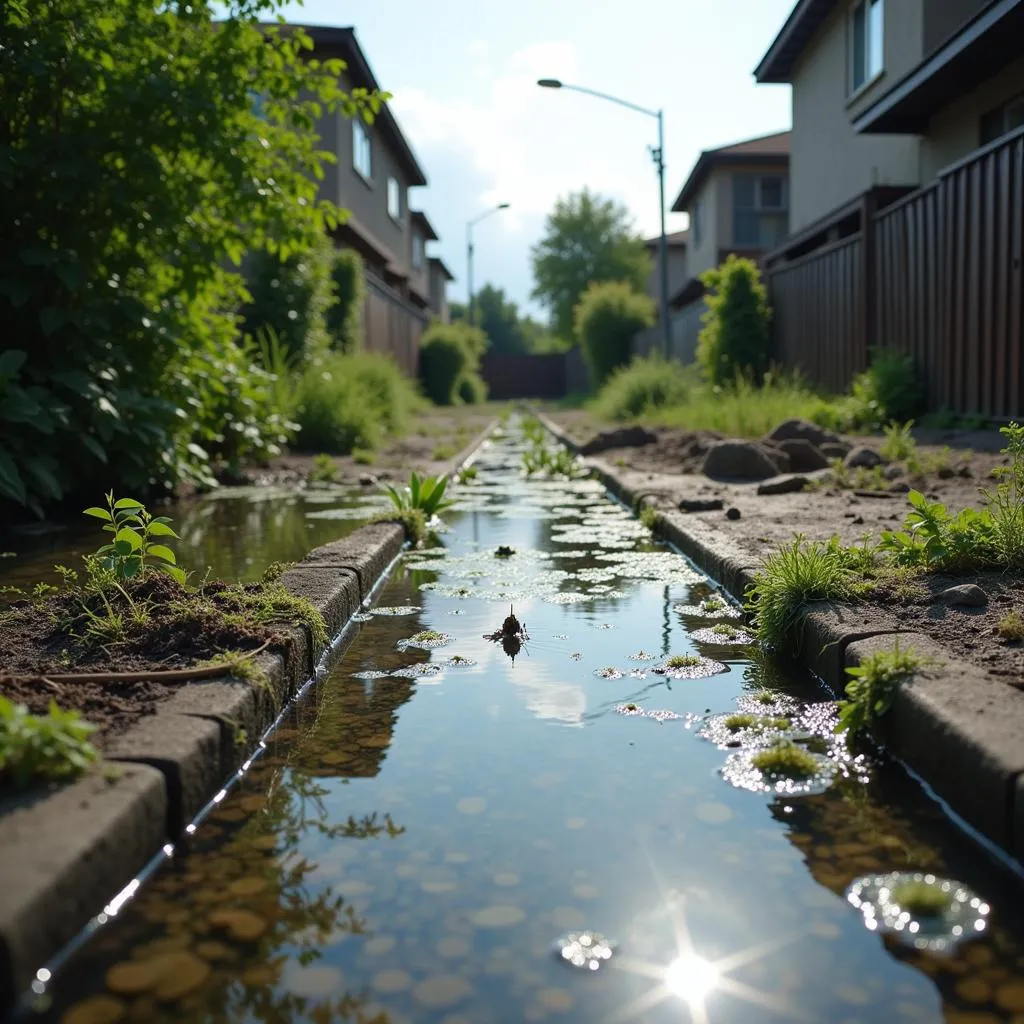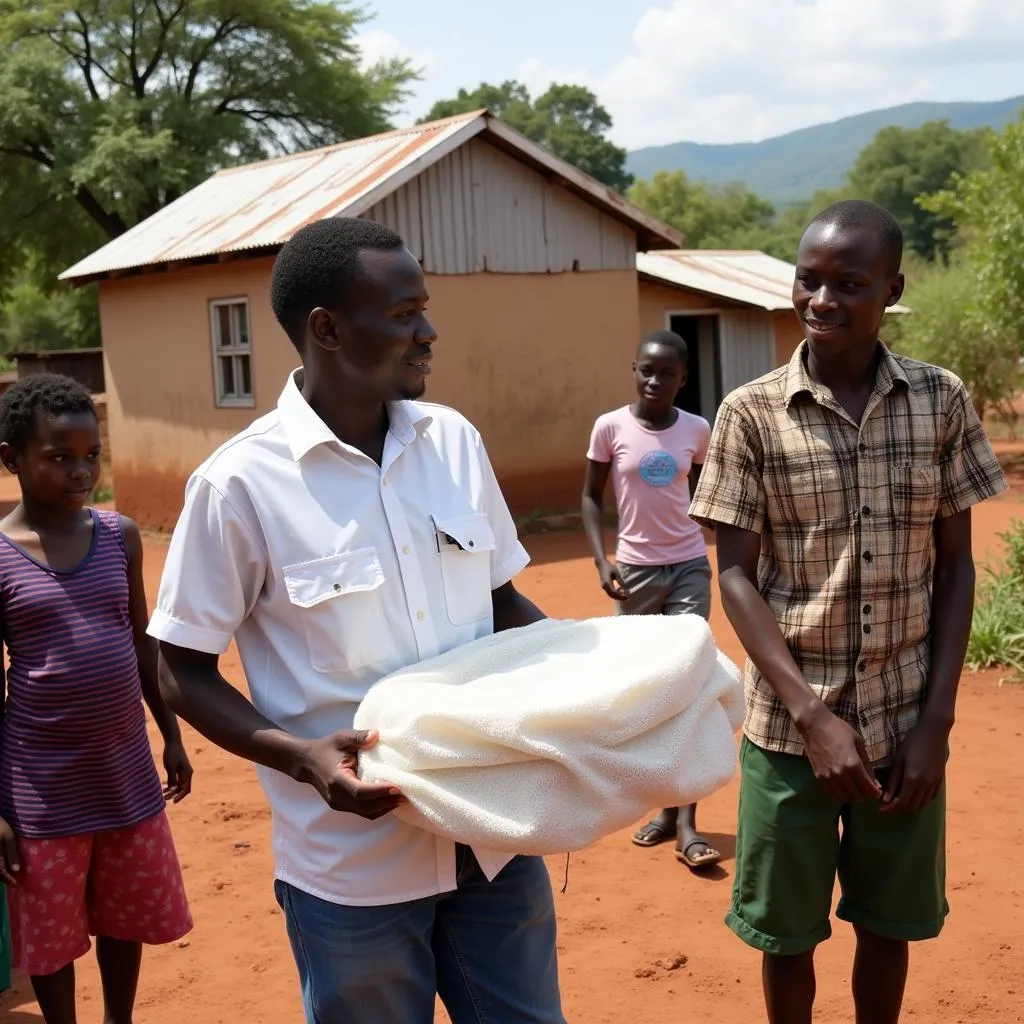The African Mosquito: A Threat to Health and Development
The African Mosquito is more than just a pesky insect; it’s a significant threat to public health and economic progress across the continent. Known for transmitting deadly diseases like malaria, dengue fever, and Zika virus, this tiny creature casts a long shadow over the lives of millions.
Understanding the African Mosquito
Africa is home to a diverse range of mosquito species, with the Anopheles gambiae being the most notorious. This particular species is a highly efficient vector for malaria, a disease that claims hundreds of thousands of lives annually, mostly children under five.
Why is the African Mosquito So Dangerous?
Several factors contribute to the African mosquito’s deadly reputation:
- Climate: The warm and humid climate in many parts of Africa provides ideal breeding grounds for mosquitoes.
- Stagnant Water: Rapid urbanization and inadequate infrastructure lead to stagnant water accumulation, providing ample breeding sites.
- Poverty: Limited access to healthcare, insecticide-treated nets, and proper sanitation increases vulnerability to mosquito-borne illnesses.
 Stagnant water in urban areas
Stagnant water in urban areas
The Impact of Mosquito-Borne Diseases
The consequences of mosquito-borne diseases extend far beyond individual suffering:
- Health Systems: These diseases place a considerable strain on already overburdened healthcare systems, diverting resources from other essential services.
- Economic Loss: Lost productivity due to illness and premature death hinders economic growth and development.
- Cycle of Poverty: Families facing mosquito-borne illnesses often get trapped in a cycle of poverty due to healthcare costs and lost income.
Combating the African Mosquito
Addressing the challenges posed by the African mosquito requires a multi-pronged approach:
- Vector Control: Implementing effective mosquito control strategies, including the use of insecticide-treated nets, indoor residual spraying, and larval source management.
- Access to Healthcare: Improving access to affordable healthcare, including early diagnosis and treatment of mosquito-borne illnesses.
- Community Engagement: Educating communities about mosquito prevention methods, promoting hygiene practices, and encouraging the elimination of breeding sites.
 Healthcare worker distributing mosquito nets
Healthcare worker distributing mosquito nets
The Future of Mosquito Control
New approaches are being explored to enhance mosquito control efforts:
- Genetically Modified Mosquitoes: Releasing genetically modified mosquitoes that are resistant to disease or unable to reproduce is showing promise in reducing mosquito populations.
- Spatial Repellents: Developing spatial repellents that create protective zones around homes and communities.
- Vaccine Development: Ongoing research aims to develop effective vaccines against malaria and other mosquito-borne diseases.
Conclusion
The African mosquito poses a formidable challenge to the health and well-being of millions. By understanding the risks and implementing comprehensive strategies, we can work towards a future where the shadow of the mosquito no longer looms so large.
FAQs
What is the deadliest mosquito-borne disease in Africa?
Malaria is the deadliest mosquito-borne disease in Africa, claiming hundreds of thousands of lives each year.
What are the symptoms of malaria?
Symptoms of malaria typically include fever, chills, headache, muscle aches, and fatigue.
How can I protect myself from mosquito bites when traveling to Africa?
Use insect repellent, sleep under insecticide-treated nets, wear long sleeves and pants, and stay in accommodations with air conditioning or screened windows.
Are there any vaccines available for mosquito-borne illnesses?
There are currently no widely available vaccines for malaria, dengue fever, or Zika virus. However, research is ongoing.
What can I do to support efforts to combat the African mosquito?
You can support organizations working on mosquito control, disease prevention, and access to healthcare in Africa. You can also raise awareness about the issue and advocate for increased funding and research.
Need Help?
For further assistance and information, please contact us:
Phone Number: +255768904061
Email: [email protected]
Address: Mbarali DC Mawindi, Kangaga, Tanzania.
Our customer support team is available 24/7 to assist you.
